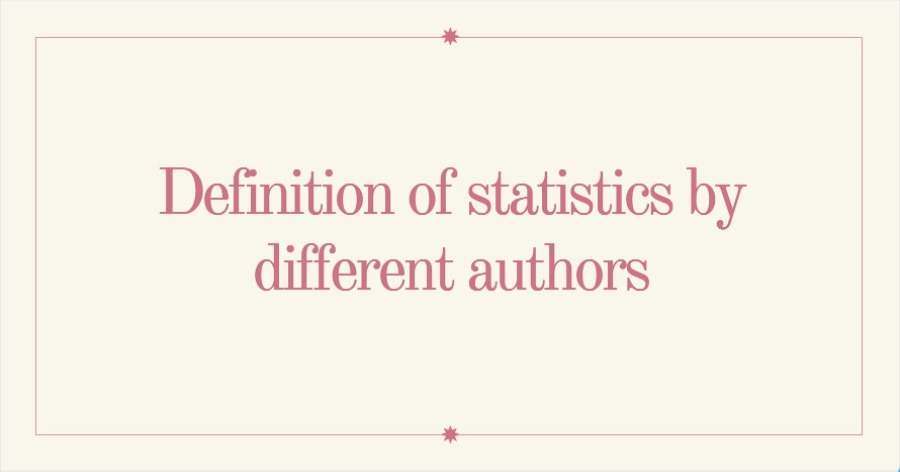Statistics is the science of numbers. The English word Statistics originates from the Italian word “Statista” or the Latin word “Status”. Statistics is about creating information about any number-based information by searching and recording it. In other words, statistics is the scientific method of collecting, analyzing, and interpreting numerical data.
Definition of statistics by different authors
According to Bowleg, “Statistics may rightly be called the science of averages.”
Prof. Boddington defines, “The science of estimate and probabilities.”
According to Prof. Horace Secrist, “Statistics is the aggregate of facts affected to a marked extent by the multiplicity of causes, numerically expressed, enumerated or estimated according to reasonable standards of accuracy, collected in a systematic manner for a pre-determined purpose and placed in relation to each other.”
American Heritage Dictionary defines statistics as: “The mathematics of the Collection, organization, and interpretation of numerical data, especially the analysis of population characteristics by inference from sampling.”
A.L. Bowley defines, “Statistics are numerical statements of facts in any department of inquiry placed in relation to each other.”
Wallis and Roberts define, “Statistics is a body of methods for making wise decisions in the face of uncertainty.”
Definition of statistics by different authors
According to Croxton and Cowden, “Statistics may be defined as the collection, presentation, analysis, and interpretation of numerical data.”
Edward N. Dubois defines, “Statistics is a body of methods for obtaining and analyzing numerical data in order to make better decisions in an uncertain world.”
The Merriam-Webster’s Dictionary definition is: “A branch of mathematics dealing with the collection, analysis, interpretation, and presentation of masses of numerical data.”
According to Prof. Ya Lun Chaou, “ Statistics is a method of decision making in the face of uncertainty on the basis of numerical data and calculated risk.”
according to W.I. King, “The science of statistics is the method of judging collection, natural or social phenomena from the results obtained from the analysis or enumeration or collection of estimates.”
What is the purpose of statistics?
Answer: The basic premise of statistics is the study of numbers to formulate policies and procedures for decision-making or the implementation of a plan.
Statistical features:
- A numerical expression is required in statistics.
- Statistics is the sum of information.
- The search for statistics must be related to a specific field.
- Statistical information is influenced by multiple factors.
- Statistical information needs to be collected in a well-organized manner.
- The statistics should be comparable and homogeneous.
- There is a need to maintain logical and quantitative accuracy in statistical estimates.
Read More:
Definition of Economics by Different Authors

Leave a Reply